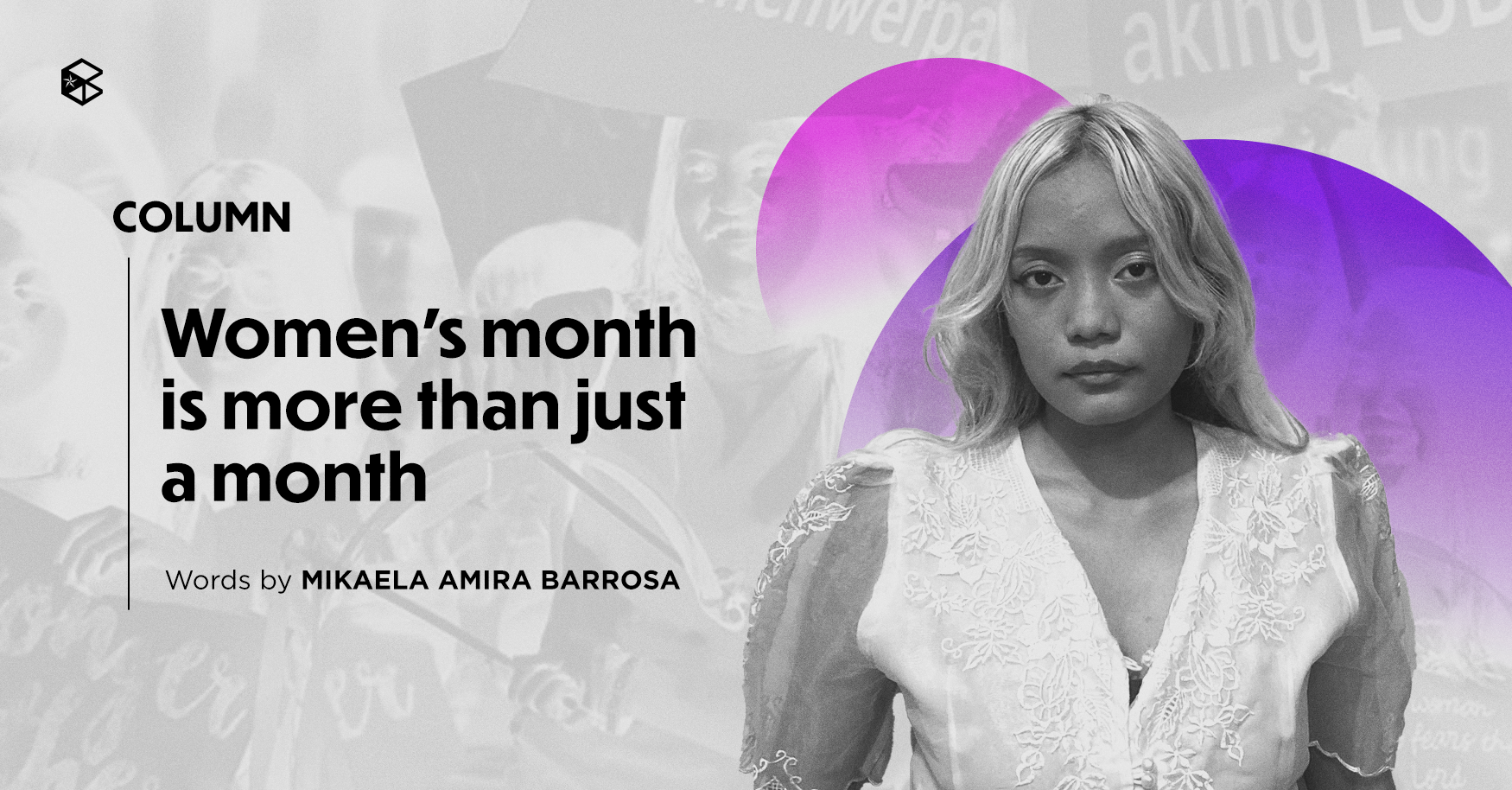Every March, we commemorate women’s activism in advocating labor rights and gender equality. With this year’s theme, “Babae sa Lahat ng Sektor, Aangat ang Bukas sa Bagong Pilipinas,” institutions celebrate and incentivise women through seminars or gifts. Although we appreciate the incentives given during women’s month, these are just a band-aid solution to the bigger problem in society—gender inequality.
It is a challenge to uplift women in all sectors in our society when, from the root itself—education—there is a lack of conversation on women’s needs. We still circle around conversations on women’s experiences from discrimination, women’s menstrual cycle, sexual harassment, or reproductive health, there is still this taboo mindset that hinders us from speaking out.
Lessons on women’s rights
In Benilde, according to the Office of the Registrar, there are approximately 6,000 female students with 5,000 male students. Meanwhile, there are approximately 400 female professors and 600 male professors who are currently teaching in the College. Benilde is known for its advocacy on diversity and inclusion, and it is evident in the programs it provides.
Taking up BSBA-Human Resource Management, we study concepts and situations that happen within the workforce, but during our classes, we shy away from conversations about women’s experiences in the workplace. It is not directly taught to us how to approach cases of women being discriminated against and harassed. I, as the student, and other female classmates would have to speak up and open this conversation to our professors for it to be discussed, but still, it is not enough.
For us to progress, we have to talk about sensitive topics that may be uncomfortable to talk about. Shying away from those conversations keeps us in the dark of the possibilities that are the truth in our society. Education must help us be informed of what we can do and how we can help uplift women in our future career paths.
There was an instance wherein a male professor mentioned to us that they did not understand using menstruation as an excuse to not go to school or work.
According to the National Library of Medicine, 1 out of 10 women experience period pain that makes them unable to carry out daily activities. This further proves that regardless of age or gender, people should be more informed about reproductive health.
In another instance, another Benildean student—who chose to be anonymous—shared her experience in the previous academic year of being the only female in a class, wherein the male professor made her uncomfortable due to his constant misogynistic remarks. He emphasized that girls were inferior to men, and that women are favored in court cases because they shed tears. Near the end of the said term, she filed a complaint on the professor to the Center for Restorative Discipline and the faculty heads of the program took action. The professor no longer teaches in Benilde.
Women should feel safe in their place of study and professors should be a source of knowledge not discomfort. There is no inferior or superior gender, we have already progressed as a society and this type of mindset should be left in the past.
Empowering women
Although there would be seminars or talks centering on women advocacies—especially during women’s month—those are optional and do not provide long-term effects. This begs the question: Is learning about women’s rights and gender equality just an option for us?
It should not be an option, but rather, instilled in our curriculum that topics on women’s rights and health are applied and talked about so that not just women, but also men are informed about it.
Celebrating women is not just a monthly occurrence for the fight for gender equality is an ongoing struggle that women face all year-round. Information starts in education, and more gender sensitive topics should be embedded within it. To empower women in all sectors, it starts with opening conversations, eliminating traditional mindset and taking action.


